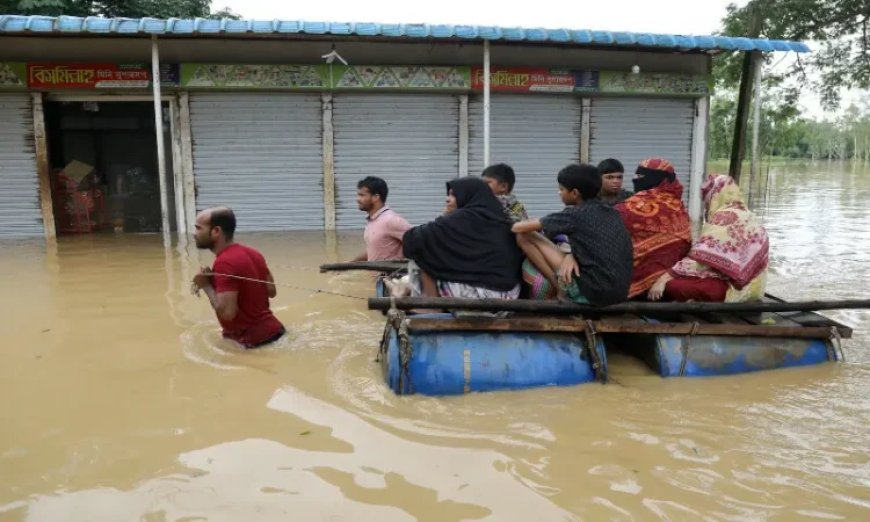Bangladesh flood deluge worsens, affecting millions, death toll rises to 13

1. Flash floods wrought havoc in Bangladesh on Friday as the country recovers from weeks of political upheaval, with the death toll rising to 13 and millions more caught in the deluge.
Flash floods wreaked havoc in Bangladesh on Friday as the country struggles to recover from weeks of political turmoil. The death toll has risen to 13, with millions more affected by the deluge.
Bangladesh, a South Asian nation of 170 million people, is crisscrossed by hundreds of rivers and has experienced frequent floods in recent decades. Monsoon rains cause widespread destruction annually, but climate change is altering weather patterns, leading to an increase in extreme weather events.
“It’s a catastrophic situation here,” said Zahed Hossain Bhuiya, a 35-year-old rescue volunteer, speaking to AFP from Feni, the worst-hit city. “We are trying to rescue as many people as we can.” Nur Islam, a shopkeeper in Feni, reported that his home had been completely submerged. “Everything is underwater,” said the 60-year-old.
Much of Bangladesh consists of deltas where the Himalayan rivers, the Ganges and the Brahmaputra, flow towards the sea after passing through India. According to local media reports, all major tributaries of these two transnational rivers were overflowing.
In India’s Tripura state, which has also been severely affected, more than 23 people have died in the floods since Monday. Bangladesh’s disaster management ministry reported in a bulletin that its latest count of 13 deaths included fatalities in cities along the country’s southeastern coast, including the main port city of Chittagong and Cox’s Bazar, a district that houses around a million Rohingya refugees from neighboring Myanmar.
The floods also heavily impacted areas east of the capital, Dhaka, including the city of Comilla near the border with India’s Tripura state. Nearly 190,000 people were taken to emergency relief shelters, while a total of 4.5 million people have been affected in some way, according to the bulletin.
These floods come less than three weeks after the ouster of former Prime Minister Sheikh Hasina, who was forced to flee by helicopter to India, her government’s primary political ally, during a student-led uprising. Hasina’s 15-year tenure was marked by widespread human rights abuses, including mass detentions and extrajudicial killings of political opponents.
She was replaced by Nobel laureate Muhammad Yunus, who now leads an interim government facing the daunting task of implementing democratic reforms ahead of anticipated new elections. Asif Mahmud, a leader of the student protests that led to Hasina’s ouster and now a member of Yunus’ caretaker cabinet, had earlier accused India of “creating a flood” by deliberately releasing water from dams. —AFP


















































